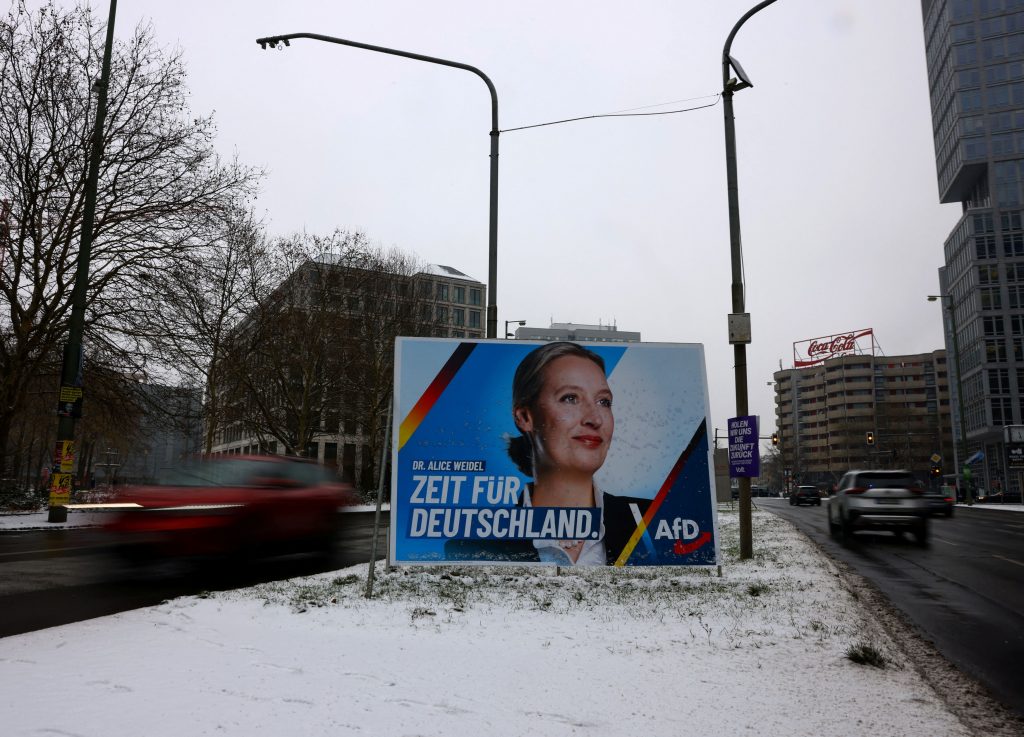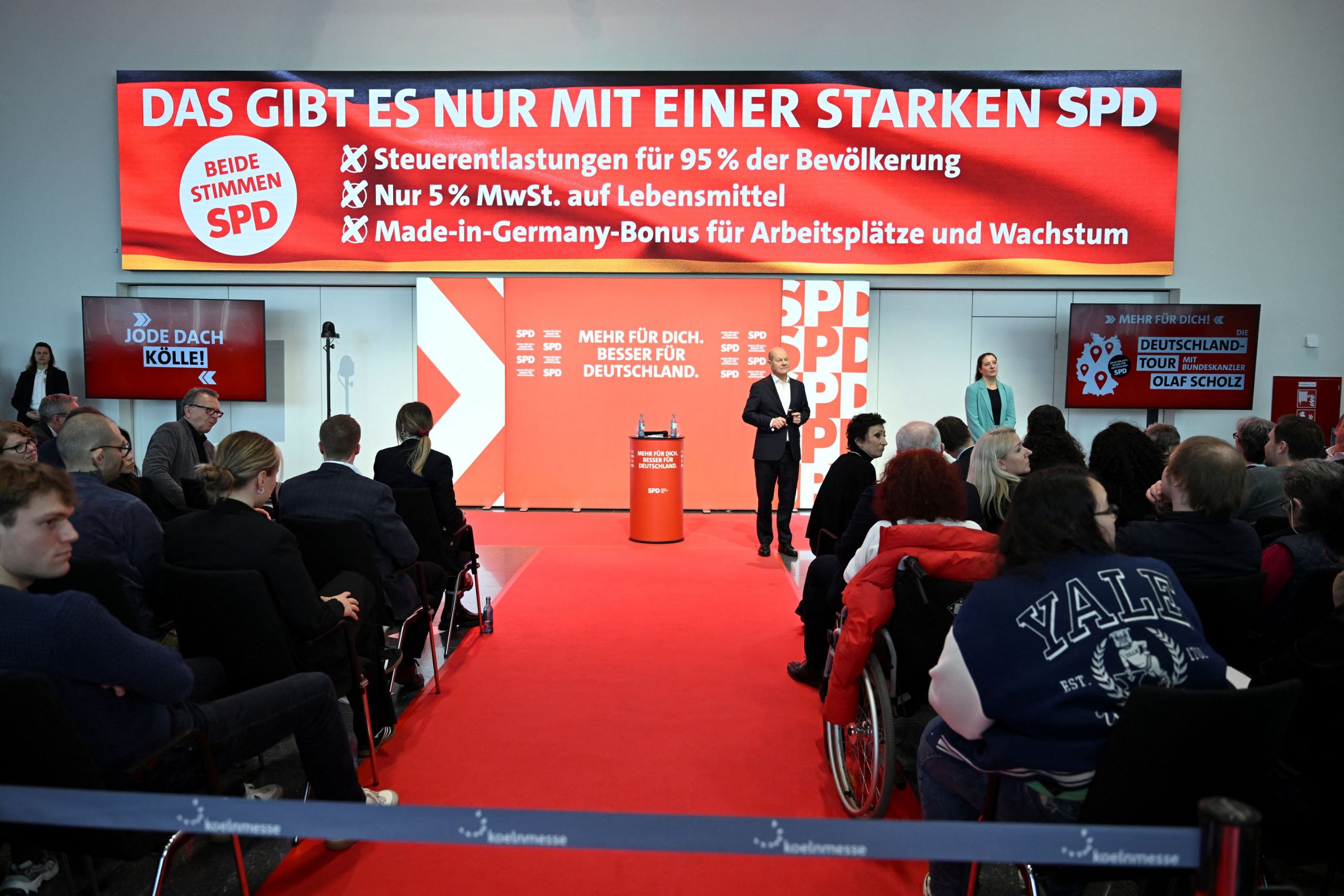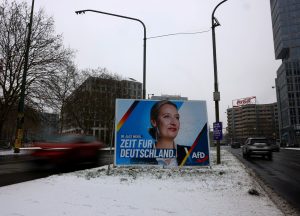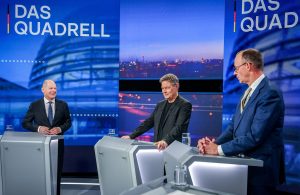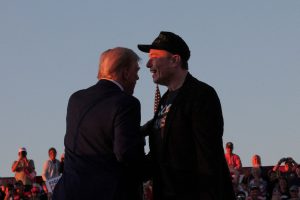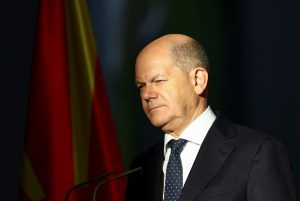Germany’s upcoming national election on February 23 is expected to tilt the country’s politics further to the right. While economic concerns remain high, the campaign has been dominated by debates over migration, crime, and Germany’s role in the war in Ukraine.
According to Reuters, the center-right Christian Democratic Union (CDU) and its Bavarian sister party, the Christian Social Union (CSU), lead the polls, holding an advantage over the far-right Alternative for Germany (AfD), though the party has had a significant uptick in support in recent months. Meanwhile, the ruling center-left Social Democrats (SPD), led by Chancellor Olaf Scholz, have seen their support drop significantly, falling to third place.
A recent YouGov poll puts CDU/CSU at 27%, with AfD in second place around 20%. Scholz’s SPD and the Greens trail further behind. The far-left Left Party (Die Linke) has surged to 9%, surpassing the critical 5% threshold needed to enter parliament.
The election was called after Scholz’s three-party coalition collapsed, triggering a snap vote.
Four candidates are vying to for the position as chancellor:
- Friedrich Merz (CDU/CSU) – The conservative frontrunner, Merz has positioned himself as a right-leaning alternative to Scholz, advocating stricter migration policies and a more business-friendly approach to revive Germany’s economy.
- Olaf Scholz (SPD) – The incumbent chancellor has struggled to maintain support amid economic stagnation and coalition disputes. He is campaigning on stability and continuity but faces an uphill battle.
- Robert Habeck (Greens) – Currently vice chancellor, Habeck has championed climate policies but faces criticism over energy policies and economic challenges.
- Alice Weidel (AfD) – Co-leader of the far-right AfD, Weidel has capitalized on voter discontent over immigration and Germany’s support for Ukraine. However, AfD remains politically isolated, with mainstream parties refusing to form a coalition with them.
With 20% of voters still undecided—7% of whom will decide on election day—the race remains volatile. According to a YouGov survey, traditional media remains the primary source of election information, with 63% of voters relying on TV, newspapers, and online news portals. However, social media plays a significant role among AfD and Left Party supporters, with 40% and 43% respectively using platforms like Facebook, X, and YouTube for political news.
Despite its growing support, AfD remains isolated, as all mainstream parties refuse to govern with it due to its classification by domestic intelligence as a suspected right-wing extremist group. With three parties hovering near the 5% parliamentary threshold needed to enter German parliament, coalition negotiations could be complicated.
